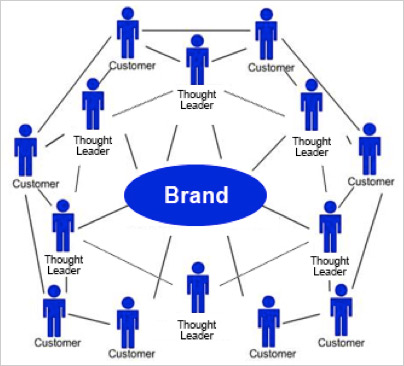For the past 12 years, my focus and interest has been Relationship Marketing, specifically Patient Relationship Marketing. It has been the allure around building, segmenting, and
leveraging a database of qualified patients, usually suffering from disease states where they could benefit from high quality information. DTP and healthcare RM has been an interesting integration of
disciplines, converging to create measurable marketing initiatives that demonstrate ROI for brands and businesses.
Today, the game has changed. And much of the table turning dynamic
can be attributed to technology and social media. Companies and brands are beginning to realize that they cannot control the relationship, nor the message flow. Using social media as a channel for
engagement raises interesting challenges for traditional RM marketers. As IBM explains in a recent white paper, “by definition, RM strategy is architected to manage relationships as a means for
extracting the greatest value from customers over the lifetime of the relationship. These strategies typically concentrate on the operational responses required to manage the customer. With social
media, though, customers (and their highly influential virtual networks) are now driving the conversation, which can trump a company’s marketing, sales and service efforts with unprecedented
immediacy and reach.” Pharma brands need to embrace this shift with a new strategy – social CRM, which recognizes that instead of managing customers, the role of the business is to
facilitate collaborative experiences and dialogue that customers value.
advertisement
advertisement
The healthcare marketing industry is waking up to the idea that pharmaceutical brands are not going to be the
center of a patients’ universe, especially when it comes to disease state information. Reports I’ve read recently proclaim that people use up to 10 sites/resources to gather information
and self educate – and perhaps one of those is a brand.com. We are also dying to join the social conversation, and understand that we are limited and cannot be as present and authentic as
we’d like.
Therefore, perhaps it’s time to do exactly what pharma has known how to do for decades – strengthen relationships with key thought-leaders and educate
them. Except now, its not only about providing HCPs with the latest and greatest clinical data, so they in turn will prescribe our products – its about providing HCPs with high quality
information so that they in turn spread the word virtually and create collaboration and value.
Social CRM is all about the use of a “medium.” The medium might be a
committed, engaged healthcare professional who is interested in using their voice to promote thought leadership and valuable information in our industry. Why is this a good idea for HCPs? Well, at a
basic level, these activities help fulfill their responsibilities to cure and care. On a business level, thought leadership elevates their status in the community, and might even generate business for
their practice.
Why is this beneficial to pharmaceutical brands? Organizations are now publishers — meaning, the company with the most engaging and interesting content is the
one who wins. We need the voice of professionals to help create and distribute content. This methodology is credible, agile, and efficient – and instead of a redundant branded message that
consumers become tired of, we are offering valuable information instead, spoken by informed, respected thought leaders.
What does social RM look like? See the visual below:

The concept is simple: step in to ignite a meaningful conversation; support the platform for this conversation to continue, and drive targets to it. Then step out.
Here are some social CRM principles to keep in mind as your strategies take shape:
- Leverage the strong relationships you have. Pharma brands
don’t need to look far to find their thought-leaders, i.e. “mediums.”
- Ignite the conversation. This means providing the fuel or information
that others need to start talking about a topic. Could be data, background, a point of view, or a list of commonly asked questions.
- Give the medium a platform. Social
media is the clear choice of course, and thought leaders may already have a post – especially consumer digital activists – but many may not. Nurses for example are the perfect medium to
help promote and spread quality information.